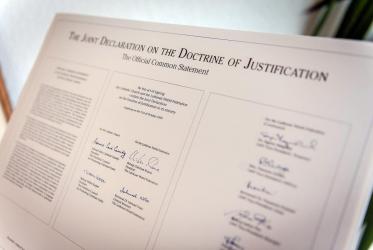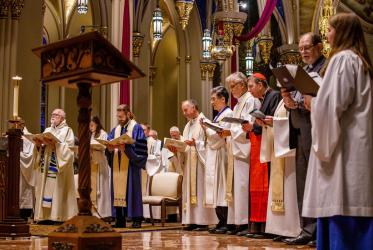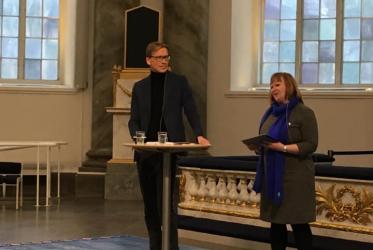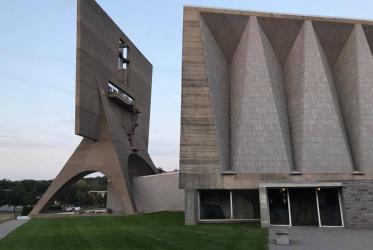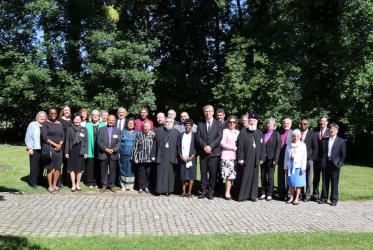Displaying 1 - 20 of 31
Ecumenism is a sense of belonging
08 February 2019
WCC Executive Committee envisions future for one ecumenical movement
08 November 2018
Romani people seek “lives of decency, dignity, and justice”
27 September 2018
Bishop Helga - diaconal apostle
22 December 2017
Tveit: search for unity “an urgent need today”
09 September 2017
"We have our work cut out for us"
10 August 2017
Digitizing of Faith and Order Papers underway
23 July 2017
WCC students study what makes a peace communicator
18 July 2017
WCC Executive Committee to focus on unity
08 June 2017





